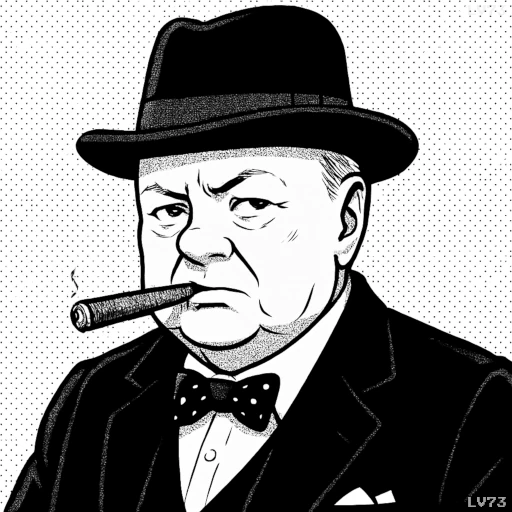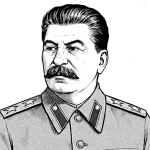“From Stettin in the Baltic to Trieste in the Adriatic, an iron curtain has descended across the Continent.”

- November 30, 1874 – January 24, 1965
- British
- Politician, army officer, writer
table of contents
Quote
“From Stettin in the Baltic to Trieste in the Adriatic, an iron curtain has descended across the Continent.”
Explanation
In this famous quote, Winston Churchill describes the division of Europe after World War II, marking the beginning of the Cold War. The “iron curtain” refers to the ideological and physical barrier that separated Eastern Europe, under Soviet influence, from the democratic and capitalist nations of Western Europe. By mentioning Stettin (a city in the northeast of Germany, near the Baltic Sea) and Trieste (a city on the Adriatic Sea), Churchill underscores the geographical extent of this divide. The “iron curtain” symbolized the stark contrast between the free societies of the West and the authoritarian regimes of the East, which were controlled by the Soviet Union.
Churchill’s words were spoken in 1946, during a speech in Fulton, Missouri, and they came at a time when the tensions between the Soviet bloc and the Western powers were intensifying. The Soviet Union had begun to expand its influence over Eastern Europe, establishing communist governments and restricting political freedoms, while the Western powers, particularly the United States and the United Kingdom, were committed to preventing the spread of communism. This division would remain a central feature of global geopolitics for nearly half a century.
Today, the term “iron curtain” is often used metaphorically to describe any situation where political or ideological barriers separate people or countries. Though the literal divide between East and West has ended with the fall of the Soviet Union, the legacy of the Cold War continues to influence international relations, as some countries still face divisions along ideological lines, particularly in the context of democracy vs. authoritarianism. Churchill’s words serve as a reminder of how historical shifts can create lasting changes in the political landscape.
Would you like to share your impressions or related stories about this quote in the comments section?



